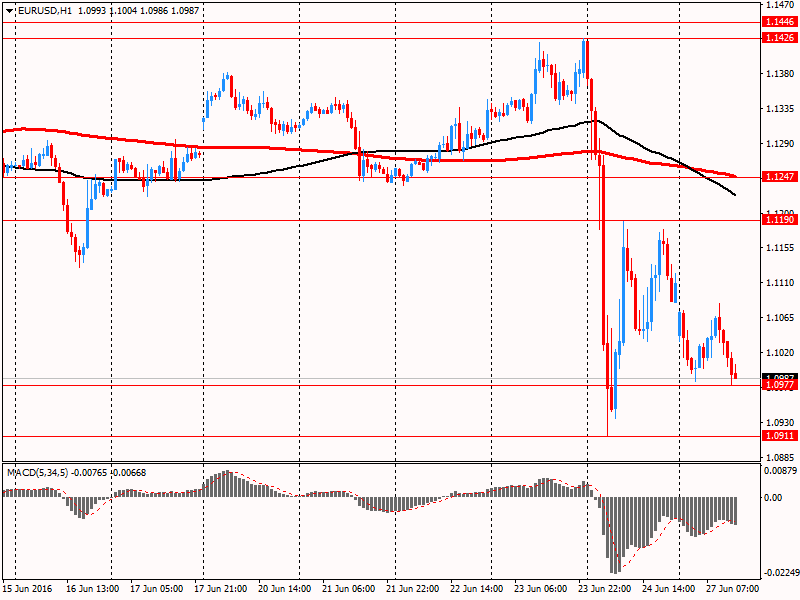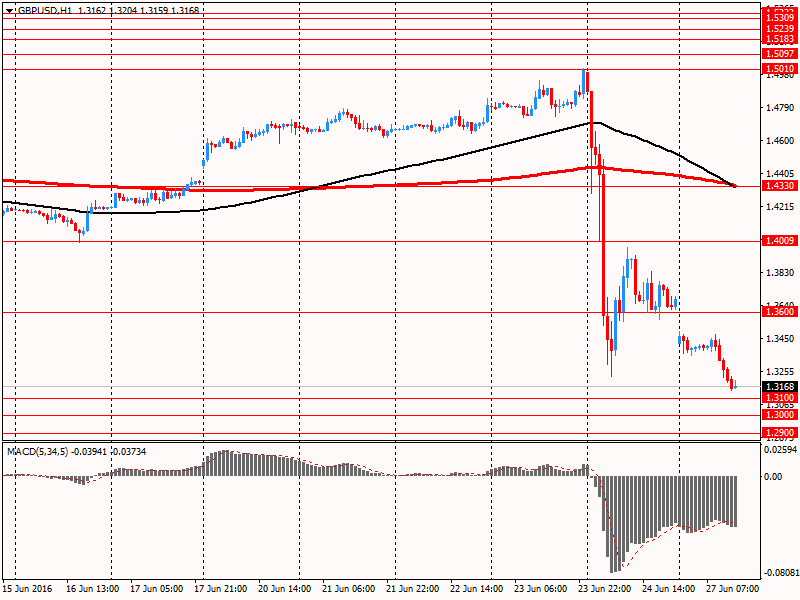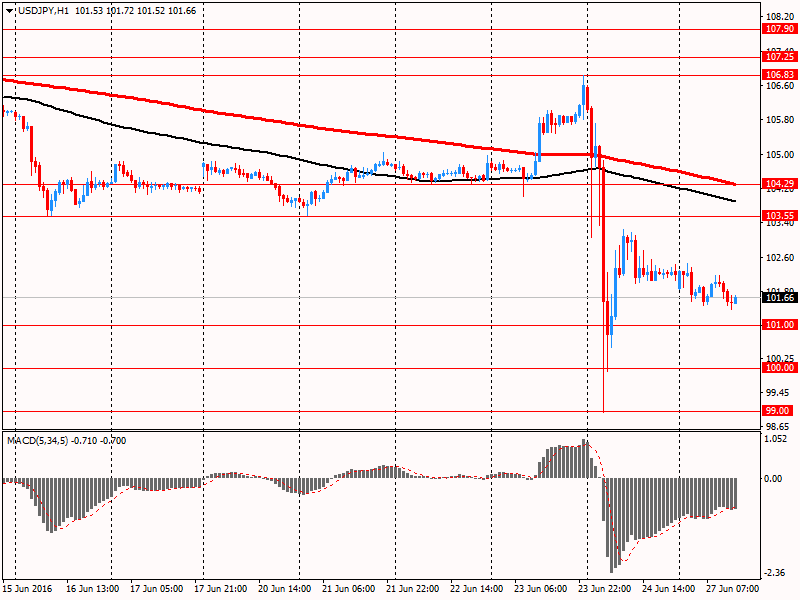- European session review: Gbp/Usd at 31 year lows
Noticias del mercado
European session review: Gbp/Usd at 31 year lows
The euro depreciated moderately against the dollar, returning to the session lows. Risk aversion pressure continued on the background of the unexpected outcome of the British referendum.
Impact of Brexit is expected to increase due to the potential negative impact of the European economic and political landscape. "The focus right now is Europe, where Brexit can cause a domino effect among the States that wish to withdraw from the EU. The main problem for the foreign exchange market is the European political uncertainty, which could lead to monetary and credit paralysis." - Said Junichi Ishikawa, an analyst at IG Securities .
Economic data from Europe had little influence on the price action. In May, the M3 money aggregate grew by 4.9%, which was higher than expected (4.8%) and the previous value (4.6%). From January to May, the indicator increased by 4.8% versus + 4.9% in the same period of 2015. Also, the data showed that lending to households increased by 1.6% in May, compared to 1.5% in April. Total credid in May increased by 1.4% after a 1.2% increase in April.
The pound fell more than 3.7% against the dollar, approaching 31-year lows, which is associated with increased risk aversion amid Brexit concerns and mass resignations of Labour MPs. Also today, the yield on 10-year UK bonds dropped below 1% for the first time. The fall of the pound continues despite current attempts of Chancellor George Osborne to reassure the financial markets. He said that the government has a plan of action in emergency situations, which will help support the economy.
EUR / USD: during the European session, ose from $ 1.0984 to $ 1.1083, but then fell back to $ 1.0977
GBP / USD: fell to $ 1.3150
USD / JPY: fell to Y101.45


